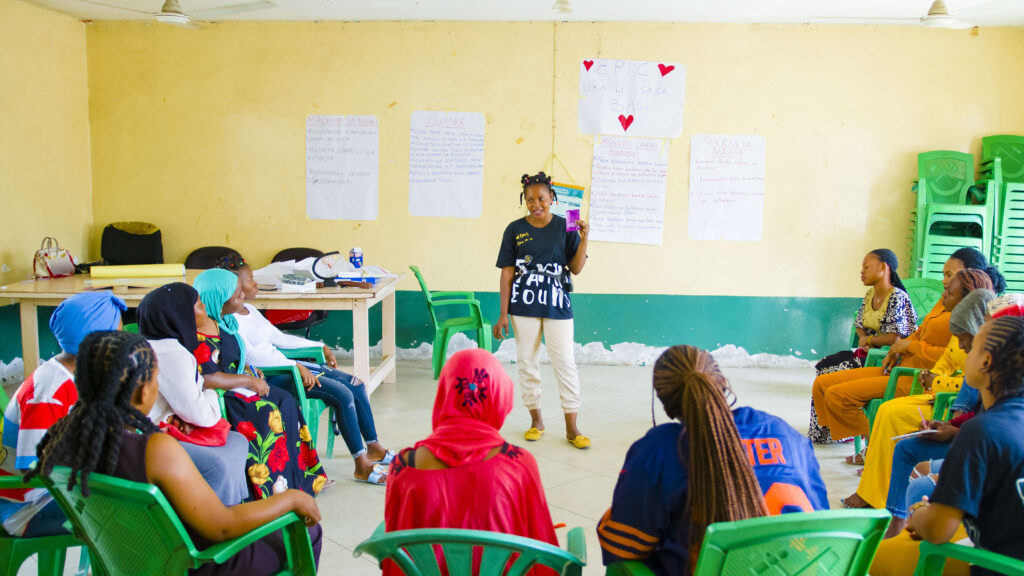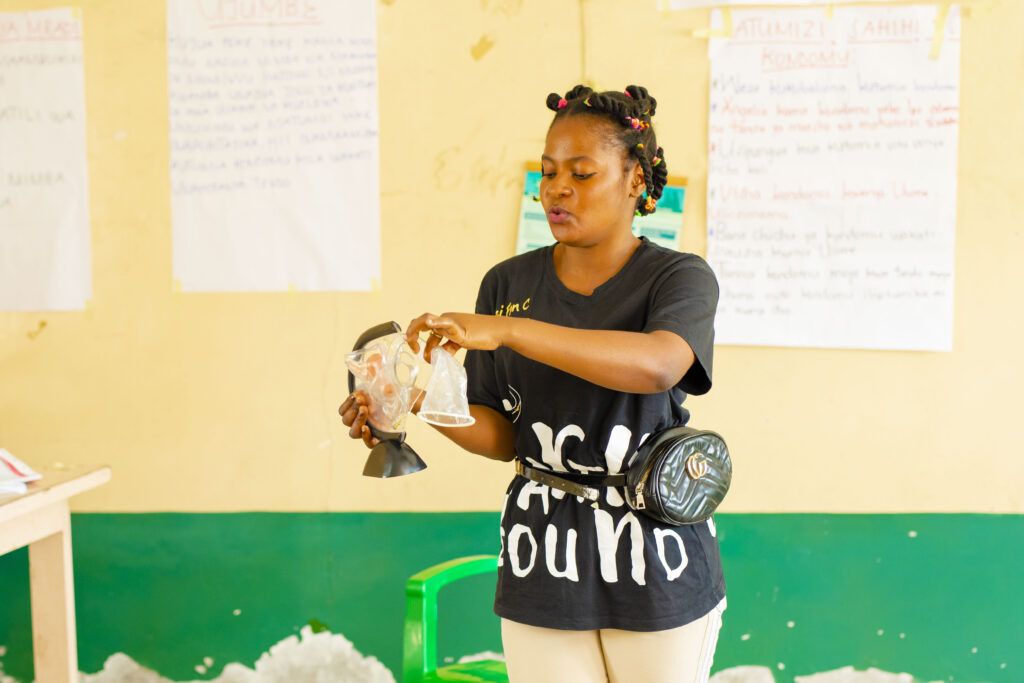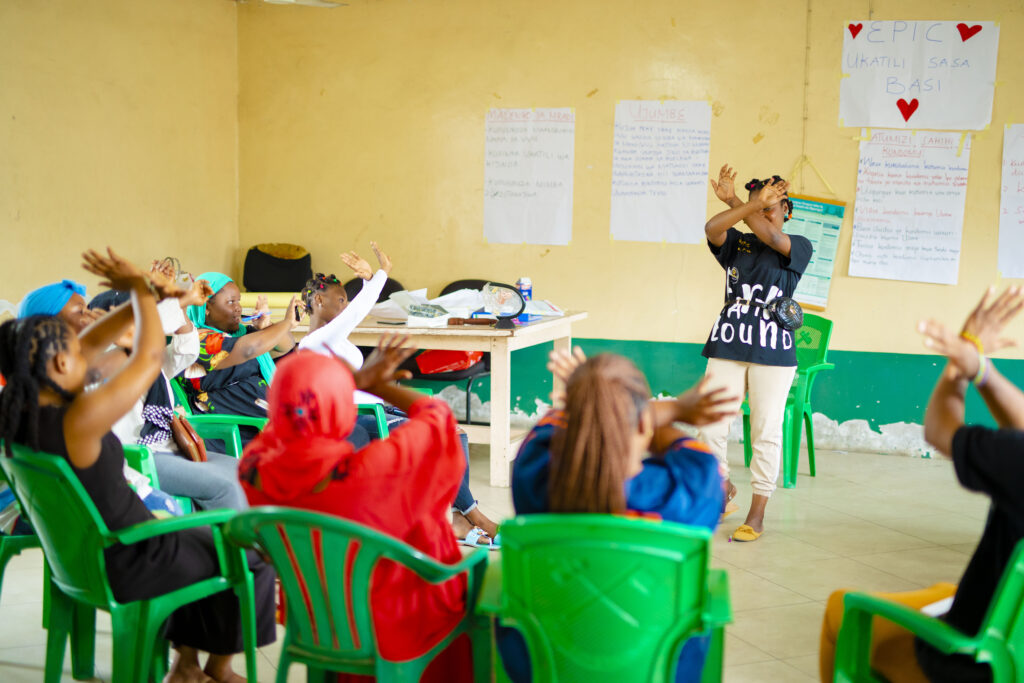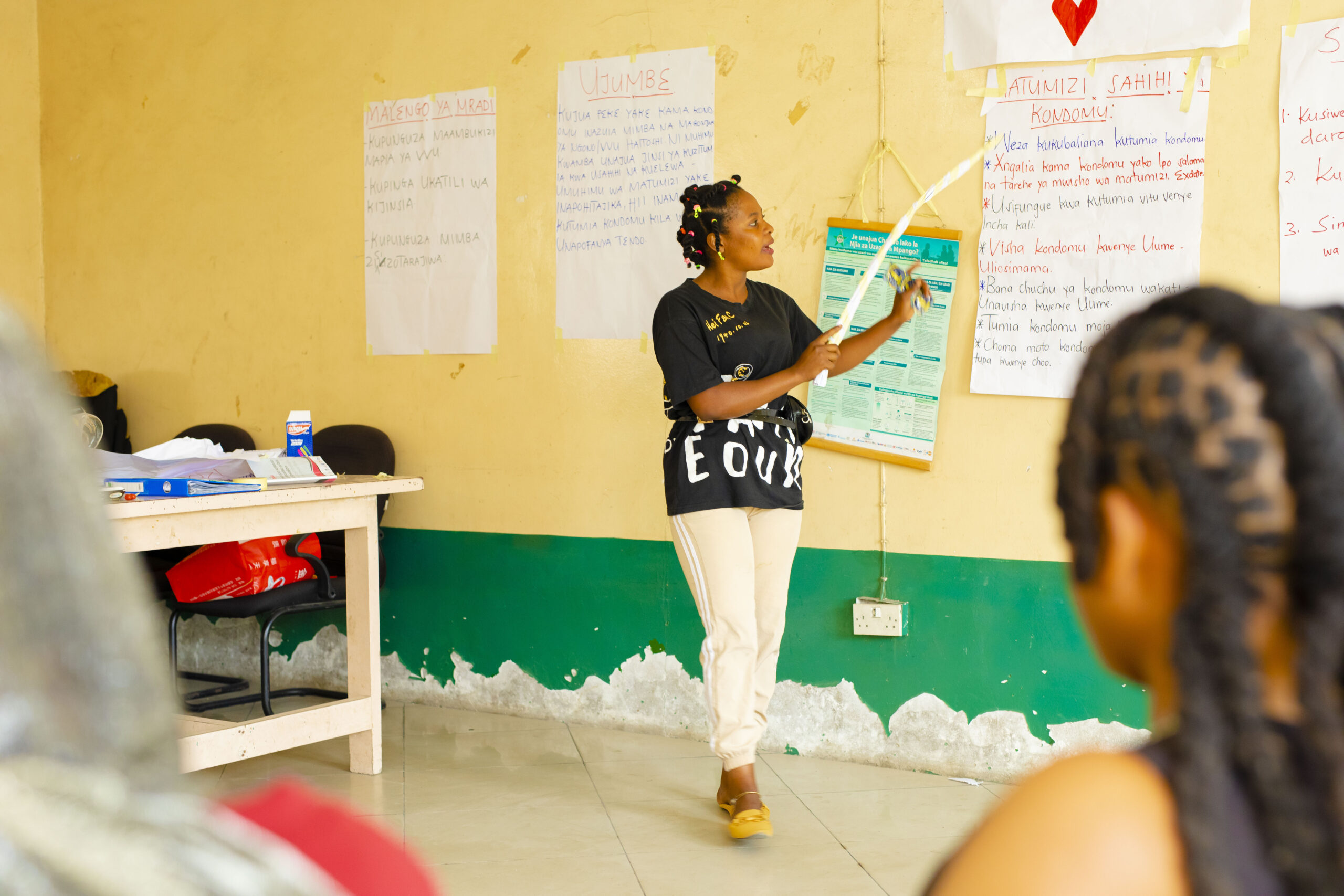Agness John, Senior Technical Officer, FHI 360, Tanzania
Kenisha Jefferson, Technical Advisor, FHI 360, Washington, DC
Every year on August 12 the world celebrates International Youth Day. This day aims to highlight issues affecting youth and celebrate their achievements in all aspects of life, including health. Globally, youth play a critical role in addressing the HIV/AIDS epidemic, especially adolescent girls and young women (AGYW).
In Tanzania, AGYW face social, economic, and physical marginalization, exacerbated by social isolation, poverty, discrimination, orphanhood, gender-based violence (GBV), and inadequate schooling. Their vulnerability pushes them to engage in risky sexual behaviors, such as transactional sex, cross-generational sex, engagement with multiple partners, and unsafe sex practices. All of these behaviors contribute to high HIV prevalence among AGYW.
The President’s Emergency Plan for AIDS Relief (PEPFAR) and U.S. Agency for International Development (USAID)-funded Meeting Targets and Maintaining Epidemic Control (EpiC) project works to achieve and maintain HIV epidemic control in Tanzania since 2019.
In the Chamazi ward, a Swahili community located in the Temeke district of Tanzania, AGYW often succumb to early marriage, have low levels of education, and attend vigodoro (all-night Swahili Street parties). There is heavy alcohol use and reports of rape and unsafe sex at these parties, putting AGYW at an increased risk of acquiring HIV.
This year, on International Youth Day, we recognize Nasra Hija, a peer educator from Chamazi ward, as an emerging youth leader in the fight for an HIV-free generation. Hija works as a peer educator to empower young women living in Chamazi, through EpiC’s community-based project.
[A] number of AGYW in the Chamazi ward drop out of school because of teen pregnancies. In the street, they are engaging in transactional sex to meet their basic needs… something that put(s) them at risk of acquiring HIV infections. Nasra Hija, Peer Educator
The project uses a peer-led approach to reach vulnerable AGYW in Chamazi and 11 regions in Tanzania by training peer educators on sexual and reproductive health and other HIV services, including prevention, pre-exposure prophylaxis (PrEP), HIV self-testing, and care and treatment services. In collaboration with the local government authority, EpiC identifies places where AGYW hang out and trains one of them to become a peer educator. The peer educator then helps identify other at-risk AGYW to establish a social and behavioral change (SBC) group. The SBC group integrates behavioral, biomedical, and structural interventions within their community, and cascades knowledge from their trainings to other vulnerable AGYW. The peer educator is responsible for facilitating the SBC sessions among AGYW and is trained to ensure sessions are engaging. Peer educators are also trained on documentation and reporting, as well as referrals and linkage to services.

Hija initially engaged with the project as a member of the SBC group, but she was quickly recognized for her natural leadership skills and ability to engage and educate fellow AGYW. As a peer educator, she was empowered to deliver behavior change sessions while creating demand for a comprehensive package of HIV prevention services. This included community-based HIV screening, testing and counseling, violence prevention, post-violence care for survivors of GBV, PrEP, and condom promotion and provision for AGYW and their partners.
Since 2020, Hija has provided resources and information to approximately 2,000 AGYW.
EpiC enables me to know how to report GBV incidents and how to be safe from it. It also [trained] me on behavior change and I was motivated to be aware of my health where I accepted HIV testing. Since then, I started being more aware of my sexual practices, and actively engaged in prevention services, such as condoms and PrEP.
Nisra Hija, Peer Educator


Featured image: Nasra Hija educates AGYW during a social and behavioral change session in Sandali Street, Temeke (Photo Credit: Agness John, FHI 360/EpiC)

